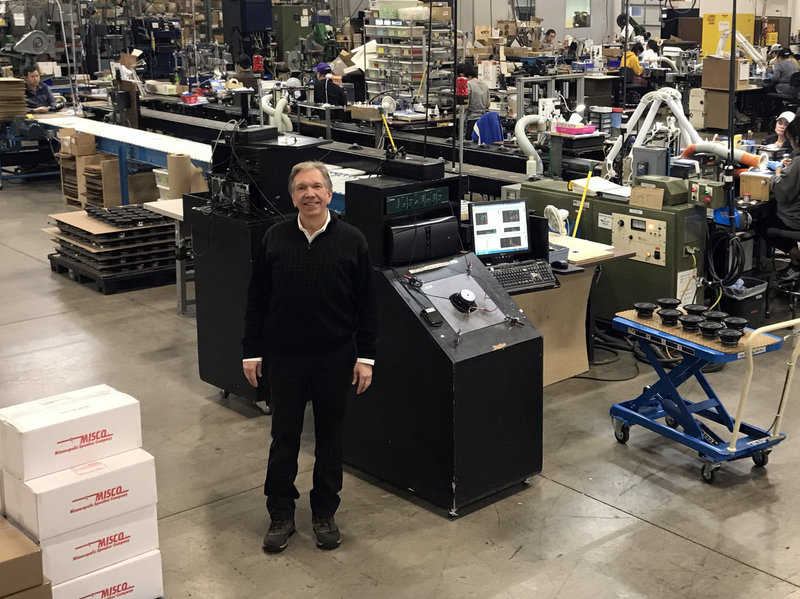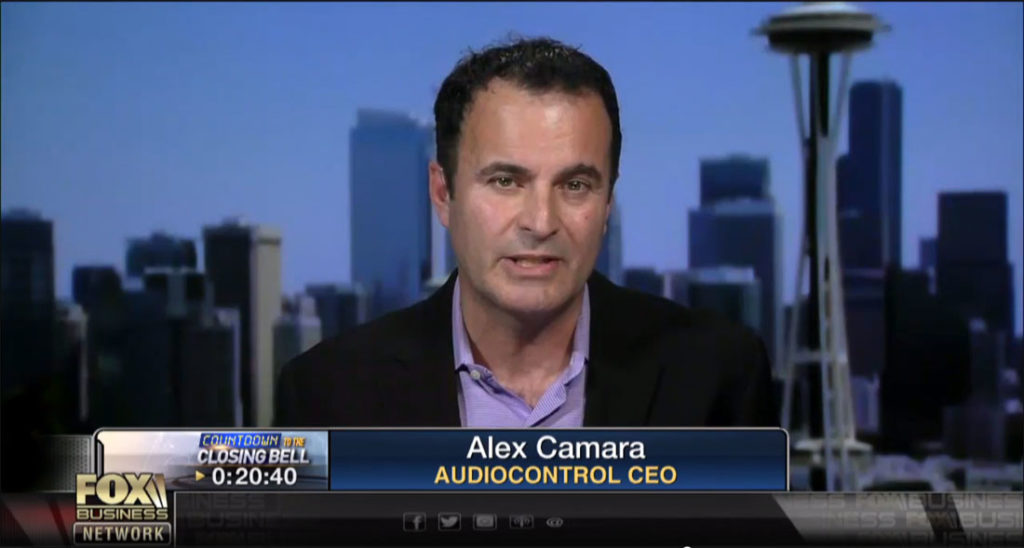
This week, National Public Radio (NPR) tells the story of the Minneapolis Speaker Company, Inc., known as MISCO, a St. Paul, MN-based manufacturer of speaker drivers and systems sold mostly on an OEM basis, who is struggling to continue to manufacture products here in the U.S. as they have for the last 70 years. What threatens their ability to continue to do so? In a word…tariffs.
See more on the MISCO story…
MISCO was started 70-years ago by Dan Digre’s dad after he finished his service in World War II. As a radio operator during the war, Digre’s father came home to discover that the quality of speakers being used in most of the consumer radios of the day were quite poor. He set out to do something about that, launching MISCO to build a better product and offer greater customer service.
The company employs about 100 Minnesotans and offers a wide variety of speaker components targeting mostly industrial applications, but also counts musicians, and even home theater buffs (more on a DIY basis) among their fans.
Formerly a Robust Industry, American Speaker Manufacturing is Mostly Gone
Digre tells NPR that at one time there was a robust speaker manufacturing business here in the U.S. Now…most of that is gone.

“Either suppliers went to China or they probably went out of business,” Digre, MISCO’s President, tells NPR.
Only Using Some Parts from China, Paying a Heavy Penalty to Do So
But much as I reported in a post on AudioControl a while back, while MISCO is manufacturing here in the U.S., they rely on various parts and subcomponents imported from China. And for the last year or so, the company has been forced to pay tariffs on those parts – tariffs that are now running him a burdensome 25%.
To try and deal with this huge tariff, the company has tried to pass some of it along to customers…and has asked their suppliers to pitch in with some type of discount. But at the end of the day, MISCO carries the bulk of the weight of those tariffs by themselves.
Paying Tariff Squashes Bottom Line
“It comes out of our bottom line. And that’s the money that we need to be reinvesting in new technology, in new products – all of the things that makes your business competitive in a global economy.”
Dan Digre MISCO President
With every import from China, Digre gets a bill from U.S. Customs and Border Protection saying how much he owes in tariffs.
‘A Surprising Number of People’ Think China Pays It
And then there’s this: “A surprising number of people that I talk to – you know, smart, intelligent, well-read people – think that somehow China is paying the tariffs,” Digre told NPR.

And as NPR reports, the reason they think that is because President Trump keeps making that claim. He also says the U.S. is taking in hundreds of billions of dollars in tariffs – but that claim isn’t true either. It’s actually more like tens of billions of dollars…and China isn’t paying it – Americans are.
American Manufacturing is Taking It On the Chin
There are more emerging signs that U.S. manufacturing is taking it on the chin. According to government data, factory activity in the U.S. has declined for four consecutive months in-a-row. Not only that but, as NPR noted, “Uncertainty over tariffs and other trade policy has left businesspeople wary of spending money in recent months. Business investment fell at a 2.7% rate in the third quarter.”
And Digre says the uncertainty is constant now. “A tweet could come out this afternoon that could dramatically change a tariff rate.”
‘Trying to Keep Building’ in America, But Tariffs May Force Closing MN Factory to Move Jobs Overseas
Consequently, the Minnesota businessman is travelling to the Philippines to search for alternative component suppliers. Switching could save him tariff money, but taking the time to search for new suppliers, travelling around the globe, is itself a costly proposition.
“We’re trying to keep building speakers here in the U.S., but there’s only a couple of us left in the country to do it,” Digre said. “And if these tariffs go on a lot longer, I don’t know if there will be anybody left in this country to do it.”
In fact, Digre says he may have to move his whole factory overseas. And that fact seems contrary to what U.S. trade policy should be seeking to encourage.




Thank you Ted, this is an important topic and one like far too many that people want to describe simply and offer simple solutions. This is not simple, nor subject to simple solutions.
This is also not really a political discussion, even though many have made it so. This is a economic and business issue, but far too many do not discuss how we got here, why or understand the complexity of today’s supply chain.
Sadly, I have seen this precise article devolve into a nasty horrible set of opposing diabtribes on audio interest sites online. I left the conversation and the group with sadness.
The current supply chain was more than 30 years in the making. It was made by many people, countries, businesses and more and it will take time and effort to reform it. Anger, looking for blame and rash language will not solve it.
Here we see one small part of what is happening. Small businesses are being hurt. American citizens are paying more. Employees and being hurt, and yes people on both sides of the water.
Everyone likes low prices on wide ranges of goods and services. This has implications on a global scale. Everyone would like more US jobs in manufacturing and elsewhere. What those jobs are or will be is quite different from 30 years past regardless of where they are.
I would ask everyone to do some work, learn more about this, tamp down the rhetoric and work on actionable solutions. This will take some time and work. I am working on it. I have visited our representatives, spoken with many, written and talked about it and I will continue. Please join me. Thank you.